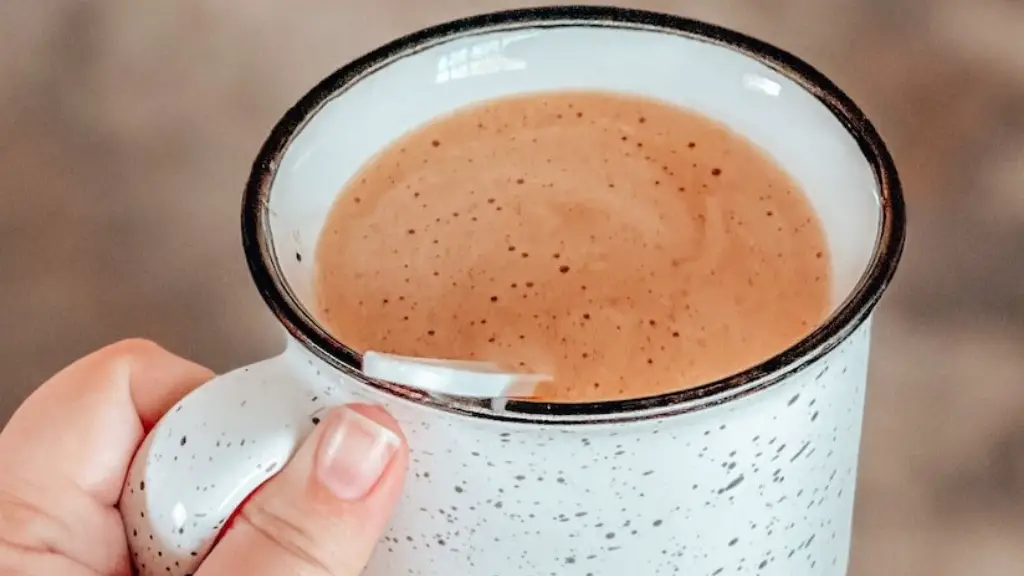What Are Palpitations?
Palpitations are a common symptom that can be experienced after drinking coffee. Palpitations are sensations of the heart beating irregularly or rapidly, or feeling like the heart is fluttering or skipped beats. It is important to distinguish palpitations from other forms of chest pain that could be serious and require medical attention.
Why Do I Get Palpitations After Drinking Coffee?
Caffeine is the most common cause of palpitations after drinking coffee. Caffeine is a central nervous system stimulant and acts as a psychoactive drug. It is found in many beverages, especially coffees and teas. Caffeine’s effects can be felt almost immediately after ingesting it, and can last from 30 minutes to several hours, depending on the dose. Caffeine can cause increased heart rate and increased blood pressure, which can lead to palpitations.
Other stimulants, such as nicotine, alcohol, and illegal drugs, can also cause palpitations. Some over-the-counter medications, such as decongestants and some pain medications, also contain stimulants.
Are All Coffees Equal When It Comes To Palpitations?
Not all coffees are equal when it comes to palpitations. The amount of caffeine in a cup of coffee depends on the type of bean, the brewing method, and how much ground coffee is used. For example, an espresso may have 60 to 100 milligrams of caffeine, while a regular cup of coffee may have 70 to 140 milligrams of caffeine.
It is important to note that even decaffeinated coffee can contain small amounts of caffeine, so it is important to pay attention to the type of coffee being consumed.
What Are the Health Risks of Caffeine-Induced Palpitations?
Experts advise that too much caffeine can be harmful, and can have serious health risks. Too much caffeine can lead to heart palpitations, insomnia, anxiety, and even a panic attack. High levels of caffeine consumption can also be linked to an increased risk of heart disease, stroke, and bone loss. Therefore, it is important to be mindful of caffeine consumption and to change up the type of coffee being consumed.
Other Causes of Palpitations
Palpitations can also be caused by medical conditions such as anemia, arrhythmia, and coronary artery disease. Palpitations can also be a result of stress, lack of sleep, physical exertion, and certain medications. In some cases, palpitations can be a symptom of an underlying heart condition, so it is important to seek medical advice if palpitations are experienced regularly.
Potential Solutions to Palpitations After Drinking Coffee
If experiencing palpitations after drinking coffee, it may be helpful to cut back on caffeine and switch to a caffeine-free alternative. Decaffeinated coffees and herbal teas may still contain some caffeine, so it is important to read labels carefully.
It may also help to focus on breathing to calm the heart rate. Techniques such as yoga or meditation may be helpful, and should be practiced regularly. Regular exercise, a healthy diet and getting enough sleep can all help reduce stress and reduce the risk of palpitations.
Caffeine Sensitivity and Palpitations
Caffeine sensitivity is another potential cause of palpitations after drinking coffee. Those who are particularly sensitive to caffeine may experience palpitations more quickly and with more intensity. Caffeine sensitivity can be caused by genetics and environment, so those who are sensitive to caffeine should be aware of their individual limits and adjust caffeine consumption accordingly.
Changes in Diet and Lifestyle for Prevention of Palpitations
Making changes in diet and lifestyle that reduce overall stress may also help to prevent palpitations. Eating a healthy, balanced diet and avoiding processed foods can help regulate blood sugar levels, while reducing alcohol and smoking can also have positive health benefits. Limiting caffeine intake and avoiding stimulants are also recommended.
Evaluating and Monitoring Palpitations
Evaluating and monitoring palpitations can help to identify any underlying health issues and reduce the risk of further health problems. Keeping a diary of palpitations may be helpful in determining the triggers and underlying causes.
Seeking medical advice may also be necessary, especially if palpitations are frequent, intense, or accompanied by other symptoms such as dizziness, chest pain, shortness of breath, or fainting.
Summary of Why Do I Get Palpitations After Drinking Coffee?
Palpitations are common after drinking coffee, and are in most cases caused by the caffeine content. It is important to be aware of the type of coffee being consumed and to understand one’s own sensitivity to caffeine. Palpitations can be a sign of a more serious health condition, so it is important to seek medical advice if they are experienced regularly or intensely.
Making changes in diet and lifestyle such as avoiding processed foods, reducing caffeine intake, and stepping up exercise can help to reduce the risk of palpitations. It is also important to monitor and evaluate palpitations to detect any underlying issues.


